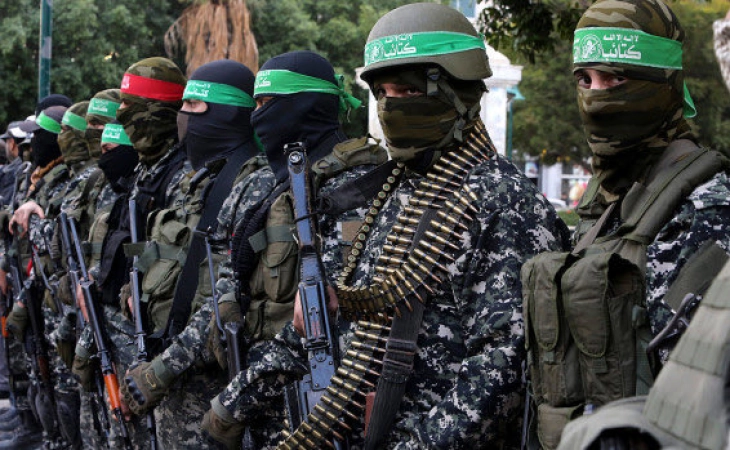Hamas confirms al-Sinwar's death as fighting continues in Middle East
- The Palestinian extremist group Hamas on Friday confirmed the death of its leader Yehya al-Sinwar, considered the mastermind of the October 7 attacks on Israel that sparked the ongoing conflict in the Middle East.

Tel Aviv/Gaza, 18 Оцтобер 2024 (dpa/МИА) - The Palestinian extremist group Hamas on Friday confirmed the death of its leader Yehya al-Sinwar, considered the mastermind of the October 7 attacks on Israel that sparked the ongoing conflict in the Middle East.
Khalil al-Hayya, the deputy head of Hamas' political wing, told the Hamas-run al-Aqsa broadcaster that he mourned the death of the "martyr" al-Sinwar, one day after Israel announced his killing in southern Gaza.
However, hopes that al-Sinwar's death could immediately result in a ceasefire and the release of Israeli hostages held by Hamas were being dashed as fighting continued in both Lebanon and Gaza on Friday.
Al-Hayya said the remaining hostages - believed to number around 101, although not all of them are still alive - would only be returned when Israel ends its "aggression" by pulling out of Gaza and releasing Palestinian prisoners.
The pro-Iranian Hezbollah militia meanwhile vowed to escalate its attacks against Israel in southern Lebanon, weeks after Israeli troops launched a ground offensive in the region.
The group said in a statement that it was announcing "the transition to a new and escalating phase in the confrontation with the Israeli enemy, which will be shown in the events and developments of the coming days."
The Israel Defense Forces (IDF) said at least 15 projectiles were fired at northern Israel from Lebanon, causing air-raid sirens to sound in several settlements.
In the course of the past day, the IDF said it struck some 150 targets in Gaza and Lebanon.
The latest developments come more than a year on from the October 7 attacks ordered by al-Sinwar, which saw around 1,200 people killed and 250 taken as hostages to Gaza.
More than 40,000 Palestinians have been killed in Israel's subsequent war in Gaza, but Israeli forces failed to locate the elusive al-Sinwar until this week.
Late on Thursday, IDF released a video showing what it said were al-Sinwar's final moments.
The footage, recorded by a drone, shows a man sitting in a bombed-out building, cloaked in dust and debris. As the drone hovers closer, he throws a stick at the remote-controlled aircraft.
Shortly after the drone footage was taken, the military said that al-Sinwar was killed in Rafah, located in the southern Gaza Strip.
Al-Sinwar had been Hamas' top commander in Gaza since 2017, before being appointed overall leader of the militant group earlier this year following the killing of Ismail Haniyeh in Tehran.
It is unclear who could replace him, as a number of leading figures have been killed by Israel in the past year.
Lebanon denounces Iranian interference
Separately on Friday, Lebanese caretaker Prime Minister Najib Mikati sharply criticized Iran for attempting to interfere in his country's affairs.
He instructed Foreign Minister Abdallah Bou Habib to summon the Iranian deputy ambassador, according to a report by the Lebanese state news agency NNA.
Mikati was referring to a statement by Iranian House Speaker Mohammad Bagher Ghalibaf, who had offered negotiations between Tehran and Paris regarding the implementation of United Nations Security Council Resolution 1701, which was passed to end the previous Lebanon war in 2006.
The resolution stipulated that both Israel and Hezbollah should withdraw from an area of southern Lebanon between the Litani River and the Israeli border.
It also called for Hezbollah and others to disarm, and set up the United Nations Interim Force in Lebanon (UNIFIL), a peacekeeping mission to patrol the area.
"We are surprised by this stance, which represents an open interference in Lebanese affairs and an attempt to establish an unacceptable guardianship over Lebanon," Mikati reportedly said.
The government in Beirut is working with all friends of Lebanon, including France, to push Israel toward a ceasefire, he said.
“The subject of negotiations to implement international Resolution 1701 is undertaken by the Lebanese state, and everyone is required to support it in this direction, not to seek to impose new mandates that are rejected by all national and sovereign considerations,” Mikati said.
For many years, Iran has exerted significant influence on Lebanon's politics and public life through Hezbollah, which has established a state within a state.







